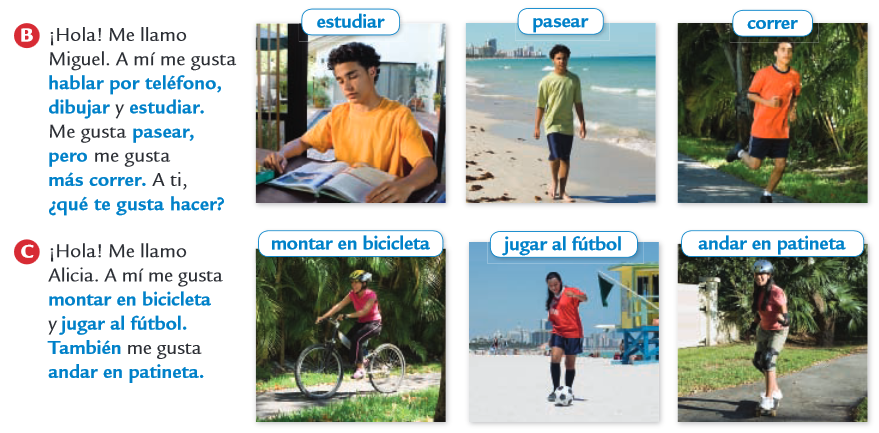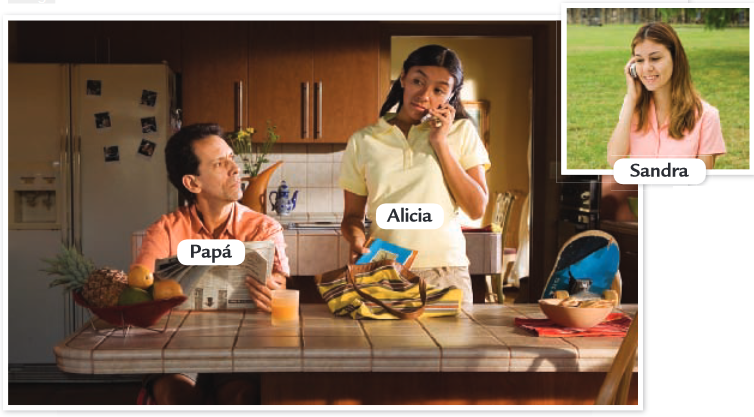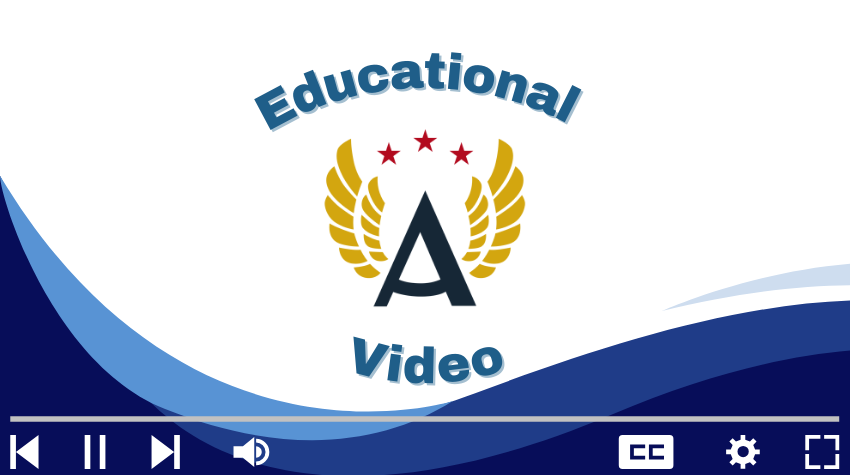Lesson 2-3 Vocabulary: En la escuela
Lesson 2-3 Vocabulary: En la escuela

Lesson 2-3 Vocabulary: En la escuela
In this lesson, you will learn to
- Describe classes and classroom objects.
- Say where things are located.
- Say where you are going.
- Talk about how you feel.
Using
- The verb estar.
- The conjugated verb before the subject to ask a question.
- The verb ir.
In this lesson, you will learn about
- Museums of anthropology and artist Frida Kahlo.
- Schools in Mexico, the Dominican Republic, and Paraguay.
- Huichol yarn painting and Taino rock art.
Lesson Vocabulary
Journal Activity
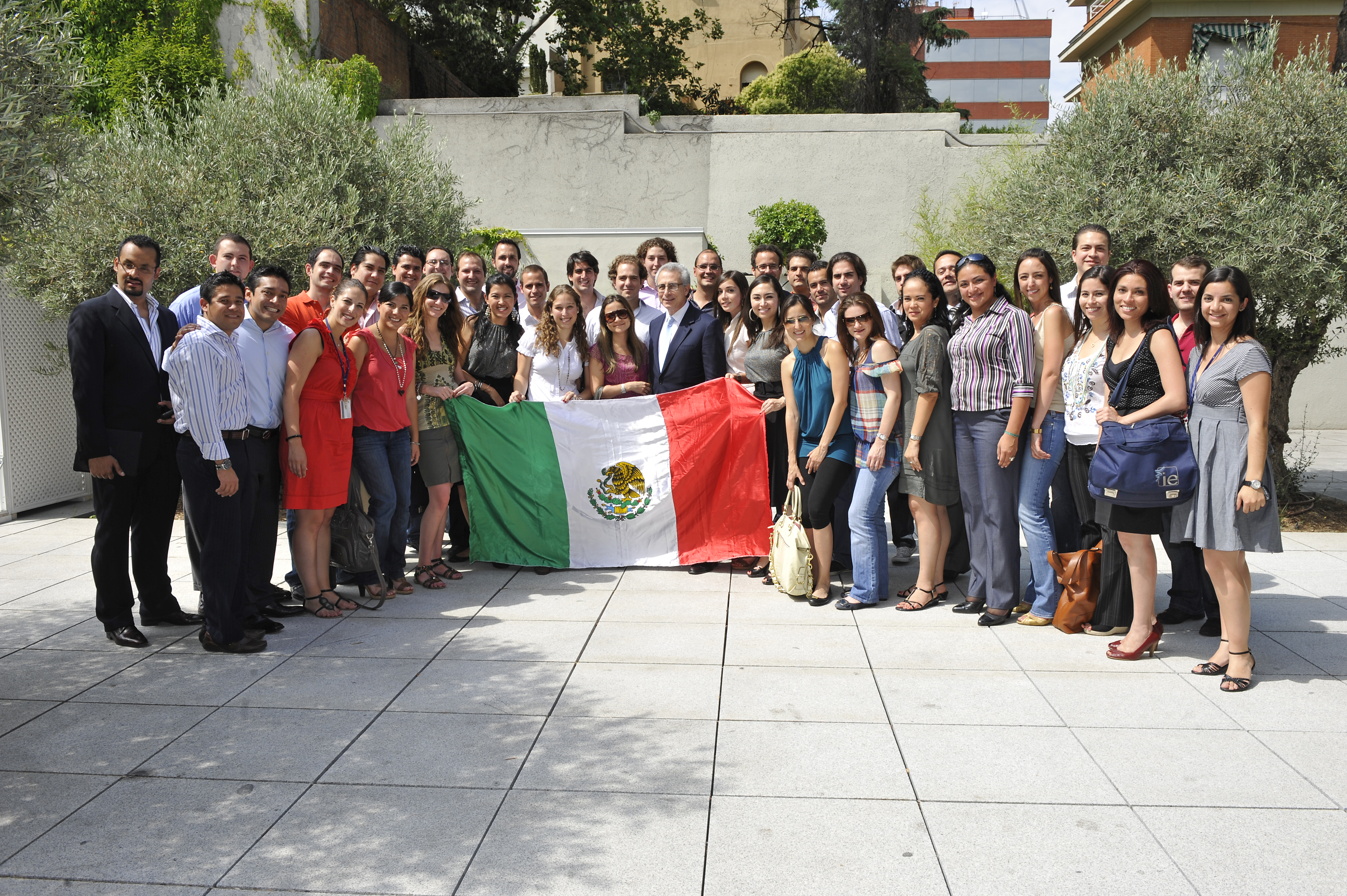
School years vary from country to country. Mexican students attend school from August until June, with short breaks in December and April. How is this different or similar to your school year?
Proceed to Next Page
Presentación de VOCABULARIO (Vocabulary Presentation)

Proceed to Next Page

The following are Vocabulary activities. Complete the activities in your Class Journal.
Activity 1
El sábado
Miguel, Teresa y Alicia hablan de las actividades que les gusta hacer. Completa la conversación con las palabras apropiadas.
(Complete the conversation about what they like to do.)
Alicia: Miguel, ¿te gusta escuchar ______1._____ los sábados?
Miguel: Sí, pero me gusta más practicar _____2._______.
Teresa, ¿te gusta montar en ________3.________?
Teresa:No, no me gusta. Me gusta más leer ______4._______.
Alicia: Teresa, ¿te gusta hacer _______5.______los sábados?
Teresa:¿Los sábados? No, sólo me gusta preparar ______6.________, alquilar ______7.______y descansar.
Activity 2
¿Te gusta?
Explica si te gusta o no te gusta comer o beber estas comidas y bebidas.
(Tell whether you like or dislike eating or drinking these foods and beverages.)
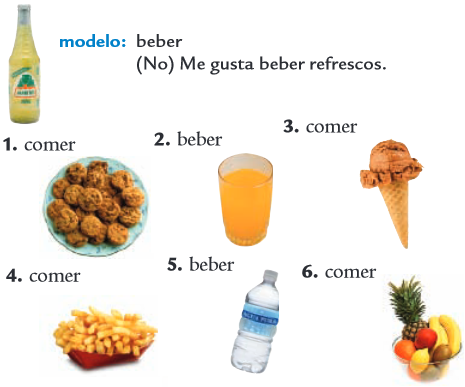
Proceed to Next Page
VOCABULARIO en contexto (Vocabulary in Context)

Telehistoria escena 1
Telehistoria escena 1
Goal: Listen to the words Alicia and Sandra use to talk about activities. Then, practice what you have heard to talk about the activities you and others like to do.
STRATEGIES
Cuando lees. Search for clues: Look for clues in the picture before reading. Who's in the photos? What are they doing?
Click Image to Enlarge
Alicia: (on phone, to Sandra, a friend in San Antonio, Texas) En Miami, hace calor. ¿Te gusta andar en patineta?
Sandra: No, me gusta más pasear o montar en bicicleta. Los sábados me gusta hacer la tarea.
Alicia: ¿Sí? Los sábados me gusta pasar un rato con amigos... ¡y dibujar! Y los domingos, ¡jugar al fútbol! Los viernes me gusta alquilar un DVD y comer pizza.
Sandra: Sí, sí. Mmm. Me gusta comer pizza y hablar por teléfono.
Alicia: ¿Hablar por teléfono? No me gusta hablar por teléfono.(Father gives a look of disbelief.)
The following are Vocabulary activities. Complete the activities in your Class Journal.
Activity 1
Comprensión del episodio: A Alicia y a Sandra les gusta...
Indica si lo que dicen Alicia y Sandra es cierto o falso. Si es falso, corrige la oración.
(Tell if what Alicia and Sandra say is true or false. Correct the false statements.)
Modelo: Alicia: Los viernes no me gusta comer pizza. Falso. Los viernes me gusta comer pizza.
1. Alicia: Llueve en Miami.
2. Sandra: Me gusta correr los sábados.
3. Alicia: Me gusta pasar un rato con los amigos.
4. Sandra: Me gusta hacer la tarea los domingos.
5. Alicia: Los sábados me gusta alquilar un DVD.
6. Sandra: Me gusta hablar por teléfono.
Activity 2
¡Hace frío!
Habla con otro(a) estudiante de qué te gusta hacer en cada situación.
(Tell a partner what you like to do in each situation.)
Modelo: Hace viento.

1. Hace frío y llueve.
2. Hace sol.
3. Hace viento y hace frío.
4. Hace calor.

5. Nieva y hace sol.
6. Llueve y hace calor.
Activity 3
¡Me gusta!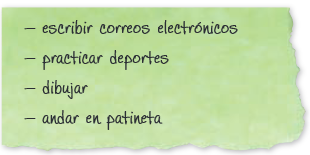
Escribe una lista de tus actividades después de las clases. Luego compara las actividades con las de otros(as) estudiantes.
(Write a list of your after-school activities and compare them with other students'.)


